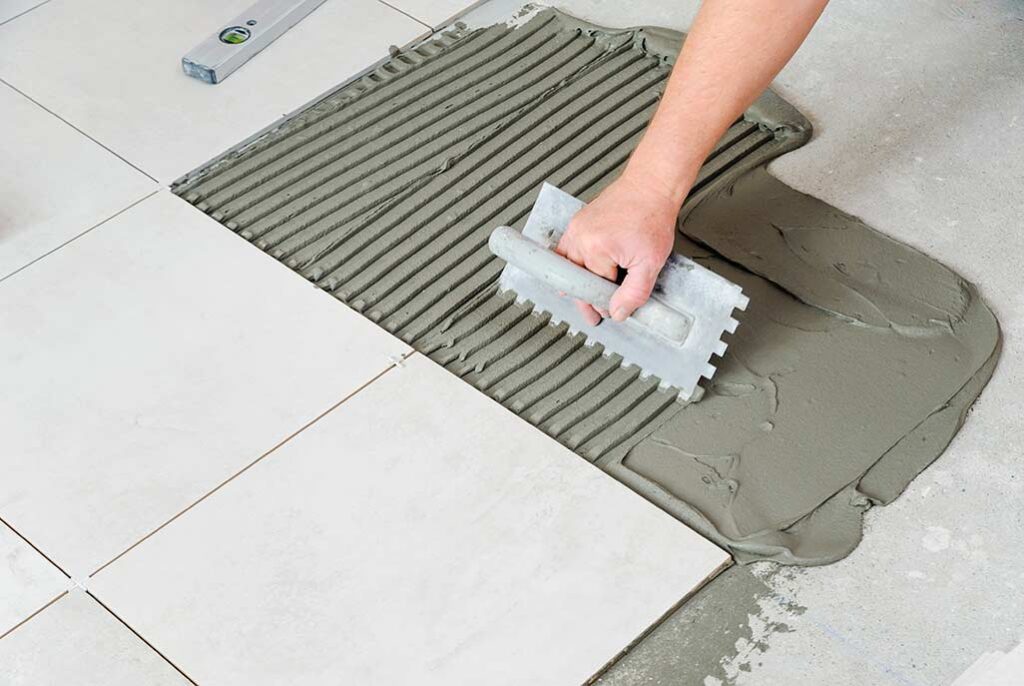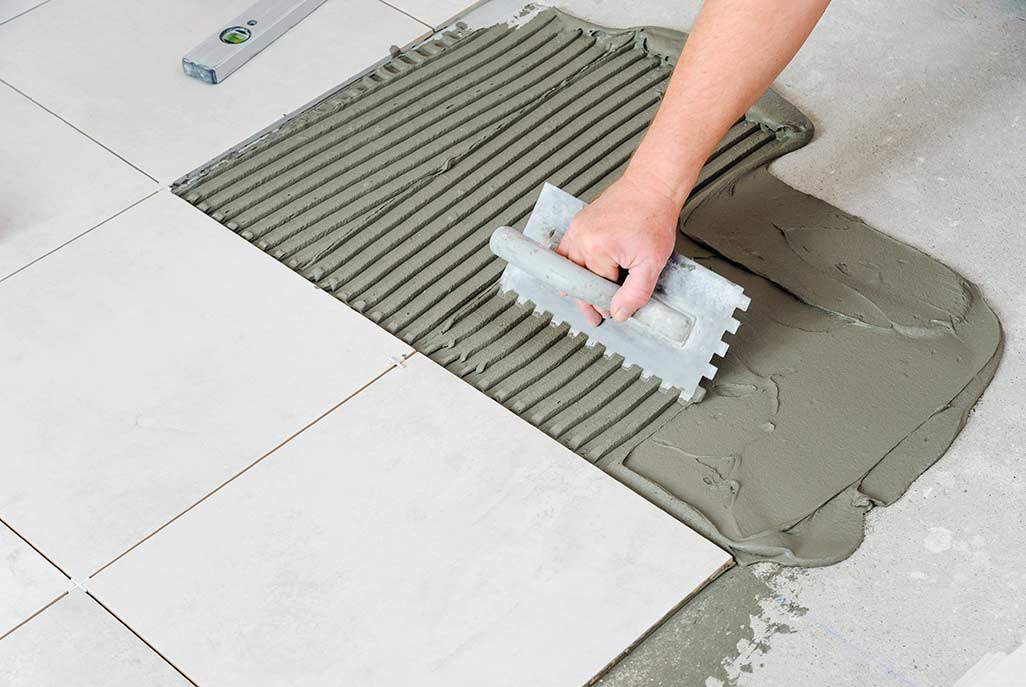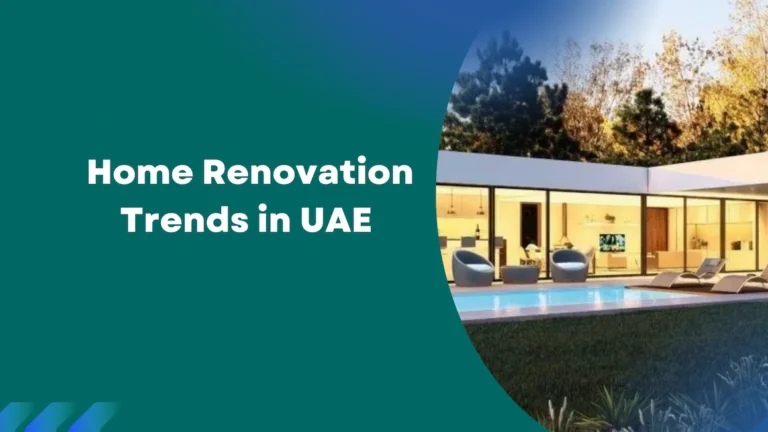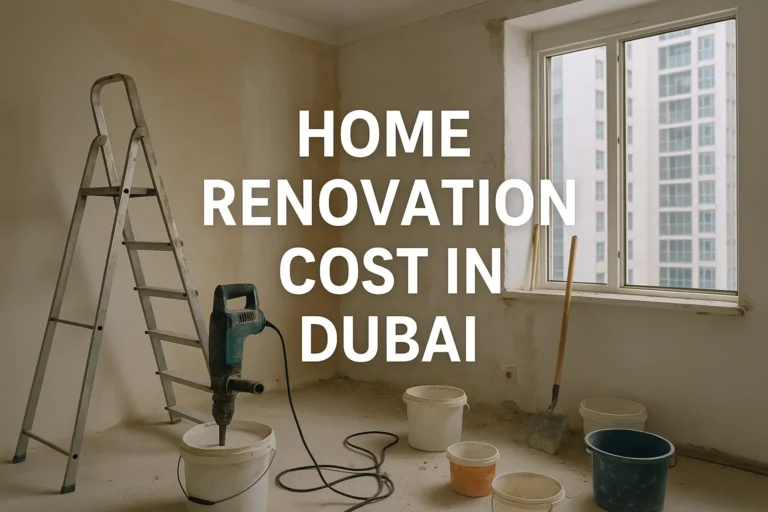Eco-Friendly Tile Materials for Dubai Homes
Eco-friendly tiles are needed for every home in Dubai due to two main factors, its lifestyle and environment. Dubai’s weather is very hot and tiles that are eco-friendly are high in energy consumption. Means they absorb heat and improve the cooling efficiency.
People prefer they are elegant, durable, health-safe because of low VOC and better indoor air quality. Most importantly, Dubai pushes eco-friendly initiatives in every sector. So, here you get to know about eco-friendly tile materials for your Dubai homes.

Key Features of Eco-Friendly Tiles
Made from Natural or Recycled Materials
Eco tiles are often made from recycled materials like:
- Glass
- Reclaimed Stone
- Fly Ash
- Wood Waste
- Bamboo
Some use renewable natural resources like:
- Cork
- Linoleum
This reduces the need for new raw materials and recycles landfill waste.
Low VOC Emissions
Regular tiles and flooring use adhesives and coatings that release smell and toxic gases, which pollute indoor air and cause health issues. Whereas eco-friendly tiles are made without harmful chemicals, glues, and resins.
Energy-Efficient Production Methods
These tiles use less energy because recycled glass tiles need less energy than new glass. Other natural materials like linoleum and cork require minimal processing, reducing carbon emissions and environmental impact.
Recyclable and Biodegradable Options
Eco tiles use materials that can be recycled or naturally break down. Recycled glass can be melted to make new tiles, and natural materials like cork or linoleum degrade over time without leaving toxic waste. This supports long-term sustainability and reduces waste.
Must Check: Mistakes To Avoid When Installing Tiles In Dubai
Best Eco-Friendly Tile Materials for Dubai Homes
These are top eco-friendly tile materials for Dubai homes to achieve the green goal.
1. Recycled Glass Tiles
Recycled glass tiles are made by melting waste glass bottles and construction scrap. It reduces air pollution by 20% and water pollution by 50%. Their key feature is reflecting light, which makes Dubai home interiors feel brighter.
How are they made?
- Collection and sorting
- Cleaning
- Crushing
- Melting and shaping
- Cooling
What are the environmental benefits?
- Reduces landfill waste
- Conserves virgin materials
- Lower energy consumption
- Less pollution
- Unique variations in color and texture
Where can they be used?
These tiles are very versatile and can be used in kitchens, bathrooms, pools, or as accent walls. They are water-resistant and stain-resistant, making them a low-maintenance option for Dubai’s humid climate.
2. Reclaimed Wood Tiles
Reclaimed wood tiles are made from old wood sourced from buildings, barns, pallets, or construction waste, turned into planks, tiles, or engineered panels.
A USDA study found that reclaimed lumber and flooring have a much lower global warming potential compared to new wood, and cutting down CO₂ emissions and energy use.
How Reclaimed Wood Tiles Are Eco-Friendly?
- Reduces Deforestation
- Minimizes Waste
- Lowers Carbon Footprint
- Conserves Resources
- Offers Durability
- Unique Aesthetic
- Improved Energy Efficiency
3. Bamboo Tiles
Bamboo matures in just 3–5 years, unlike hardwoods that take decades, which makes it a sustainable choice. It absorbs CO₂ and releases more oxygen, strand-woven bamboo is harder than oak (~3000 Janka), and with proper sealing, it resists moisture in Dubai’s humid climate.
Indoor Health & Sustainability Benefits of Bamboo Tiles
- Certified bamboo tiles like FloorScore, GREENGUARD, CARB have low or zero VOC emissions.
- Bamboo’s smooth surface doesn’t trap dust, allergens, or mold and is easy to clean.
- Bamboo milling and processing use less energy and produce minimal waste.
An architecture study showed that using woven bamboo plaster walls can lower room temperature by about 2.6°C, as bamboo’s cavity structure naturally helps spread out and reduce heat.
4. Cork Tiles
Cork tiles are a unique and sustainable flooring option, perfect for Dubai homes. They come from the bark of cork oak trees, which is safely harvested every 9–12 years without cutting the tree. This process can repeat over the tree’s 200-year lifespan, creating a renewable supply chain without deforestation.
Cork forests absorb CO₂, supporting the environment, and their lifecycle can be carbon-neutral or even carbon-negative. Cork’s natural cellular structure absorbs heat and sound, providing thermal comfort and quietness in Dubai apartments.
Key Benefits for Dubai Homes
- Keeps homes cool in summer and warm in winter.
- Reduces stress on joints and resists dents/scratches.
- Resists mold, mildew, dust mites, and pests for healthier indoor air.
- Handles Dubai’s humidity with proper sealing.
- Fits both modern and classic interior styles.
5. Porcelain & Ceramic Tiles
Porcelain and ceramic tiles with green certifications like:
- LEED
- GREENGUARD
- EU Ecolabel
- BREEAM
These are a sustainable and practical choice for Dubai homes. These tiles are made using energy-efficient methods, like converting kiln waste heat into electricity and using recycled packaging. Their non-porous nature prevents mold/mildew, and thermal mass helps insulate, perfect for Dubai’s hot climate.
Key Benefits:
- Sustainable Manufacturing Practices
- Recycled Content
- Low Emissions and Non-Toxic Materials
- Long Lifespan and Durability
- Compliance with Green Building Standards
6. Terrazzo Tiles
Terrazzo tiles are made from recycled glass, stone, and marble chips, reducing the need for new materials and cutting waste. They’re durable and low-maintenance, perfect for Dubai’s climate, easy to clean, and stain-resistant. Their recycled content makes them eligible for LEED and green building certifications. With their versatile and long-lasting design, they’re a great fit for modern Dubai interiors.
- Made from glass and stone chips, making them eco-friendly.
- Long-lasting and easy to clean.
- Support LEED and sustainable building standards.
- Fit any interior style.
7. Natural Stone Tiles
Natural stone tiles like marble, granite, travertine, and limestone are a premium and eco-friendly flooring choice for Dubai homes if ethically sourced. Their natural origin, durability, and timeless appeal make them sustainable.
Cork or recycled tiles, ethically sourced stone is extracted, avoiding tree cutting and reducing quarry waste. Their high thermal mass regulates indoor temperatures, lowering AC costs in Dubai’s hot climate.
FAQs
What is the most environmentally friendly tile?
Most environmentally friendly tiles are those which are made from recycled materials.
Which flooring is most eco-friendly?
Bamboo, cork, and recycled material tiles are the most eco-friendly flooring because they are renewable, biodegradable, and have a low environmental impact.
What are eco tiles made of?
Eco tiles are made from recycled glass, bamboo, cork, and green-certified ceramic or porcelain.
Final Thoughts
Eco-friendly material tiles are a great choice for homes in Dubai, combining style, durability, and sustainability. By choosing them, you not only make your home healthier and more energy-efficient but also contribute positively to the environment.







